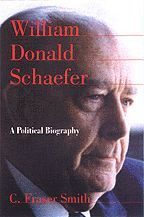
Reviews
This is a magnificent study, sweeping in scope and rich in detail... There is much to learn from the Baltimore experience, and this gracefully written volume tells the tale well. Highly recommended.
Matthew A. Crenson takes readers on an exhilarating ride through more than two centuries of American history. With lucid prose, rapid pacing, and a parade of dramatic incidents, he addresses the critical issues that have confounded citizens and historians since the nation's founding.
A comprehensive look at the manifold forces that influenced and impeded city government for more than 300 years. Crenson also possesses a keen eye—and nose—for the two-way traffic between politics and the body politic. He scrapes away charm (and myth) to expose less savory features of civic history.
A sweeping history of Baltimore written by a true master of this subject. A political scientist by training with considerable skill as a writer and historian, Crenson is also a long-time observer and commentator on the Baltimore scene. In addition to its academic virtues, this gripping book would make a wonderful gift for readers in Baltimore or with a Baltimore attachment.
Book Details
Prologue
Part I
1. Settling
2. Government in the Streets
3. Revolution
Part II
4. Baltimore at War
5. From Town to City
6. "Calamities Peculiarly Incident to Large Cities"
Part III
7. Trial by Combat
8
Prologue
Part I
1. Settling
2. Government in the Streets
3. Revolution
Part II
4. Baltimore at War
5. From Town to City
6. "Calamities Peculiarly Incident to Large Cities"
Part III
7. Trial by Combat
8. Baltimore Triumphant
9. Public Debt and Internal Improvements
Part IV
10. Working on the Railroad
11. Corporate Challenge to Equality and an Educational Response
12. Road Hogs
13. Policing the Disorderly City
Part V
14. Racial Borders
15. Between Mobs and Corporations
16. Pigs and Politicians
17. Know-Nothings
Part VI
18. American Party Reckoning
19. Baltimore in the Divided Nation
20. City at War
21. Democratic Resurrection
Part VII
22. Ex-Slaves, Ex-Confederates, and the New Regime
23. The Ring
24. Fin de Siècle
25. Political Economy
Part VIII
26. Fire, Smoke, and Segregation
27. Metropolitan Morality
28. World War and Municipal Conquest
29. Civil Service and Prohibition
Part IX
30. Boom to Bust
31. Relief, Repeal, New Deal
32. Democratic Harmony, RepublicanVictory
33. D'Alesandro and His Democrats
Part X
34. I'm All Right, Jack
35. Slow-Motion Race Riot
36. Racial Breakdown
Part XI
37. Baltimore's Best
38. Driving the City
39. Turning Point
Afterword
Acknowledgments
Appendix A
Appendix B
Notes
Bibliographic Essay
Index






